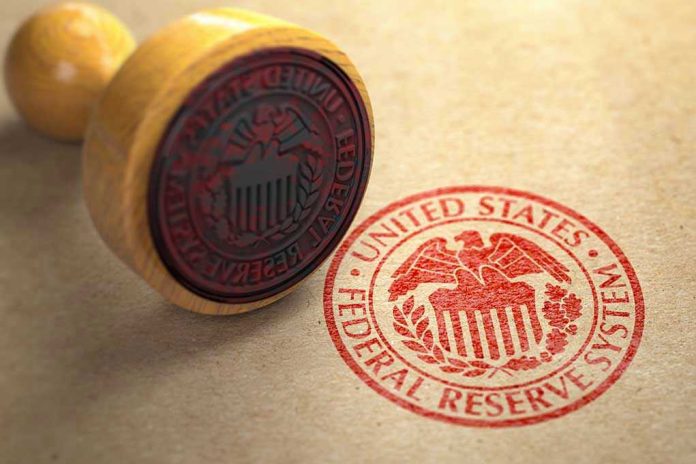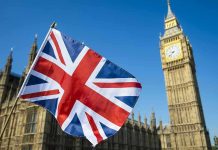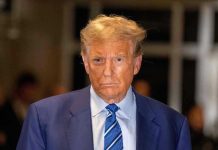
President Trump has signaled he’s ready to reshape the Federal Reserve with a leader who will prioritize rate cuts over inflation fighting, marking an unprecedented shift in how presidential power intersects with central bank independence.
Quick Take
- Trump says he has already decided on Jerome Powell’s replacement, with announcement expected after Thanksgiving 2025
- The president has nominated Stephen Miran to the Fed Board, a known advocate for lower rates and tariff expansion aligned with Trump’s economic agenda
- Treasury Secretary Scott Bessent narrowed the field to five finalists: Michelle Bowman, Christopher Waller, Kevin Warsh, Kevin Hassett, and Rick Rieder
- The move represents unprecedented public pressure on the Fed, raising concerns about politicization of monetary policy and the erosion of central bank independence
The Power Play Behind the Fed Chair Selection
Trump’s repeated public statements that he “thinks he knows his choice” for Federal Reserve Chair reveal a calculated strategy to influence not just who leads the central bank, but how monetary policy will be conducted for years to come. This isn’t subtlety. The president has made clear he wants a chair who will cut interest rates aggressively, regardless of inflation concerns. His criticism of Jerome Powell as “Mr. Too Late” and worse reflects a fundamental disagreement about the Fed’s dual mandate of price stability and maximum employment.
Breaking Precedent with Stephen Miran’s Nomination
When Trump nominated Stephen Miran to fill a temporary vacancy on the Federal Reserve Board in August 2025, he signaled exactly what kind of leadership he expects. Miran, as Chair of the Council of Economic Advisers, openly acknowledged during Senate hearings that Trump nominated him specifically because they share policy views. This transparency about political alignment contradicts decades of Fed tradition emphasizing independence from presidential ideology. Miran’s nomination serves as a test case for how far the administration will push to reshape the institution.
The Shortlist Reveals Trump’s Preferred Direction
Treasury Secretary Scott Bessent’s revelation of five finalists for Fed Chair tells a revealing story about the administration’s priorities. Kevin Hassett and Rick Rieder represent the dovish end of the spectrum, favoring lower rates and stimulus. Christopher Waller and Kevin Warsh occupy more moderate ground. Michelle Bowman, the lone dissenting voice on recent Fed decisions, appeals to Trump’s desire for a chair willing to challenge the consensus. The composition of this list shows Trump is hunting for ideological alignment, not just competence or experience.
The Constitutional Tension Nobody’s Discussing
While legal scholars debate whether Trump can actually fire a sitting Fed governor, the real question is whether a president should be allowed to shape Fed leadership so overtly. The Federal Reserve Act of 1913 deliberately insulated the institution from political cycles through staggered terms and the independence doctrine. Nixon’s pressure on Arthur Burns during the 1970s contributed to stagflation that damaged the economy for a decade. Yet here we are again, with a sitting president openly engineering the central bank’s leadership to align with his economic priorities rather than sound monetary policy principles.
What Markets Are Bracing For
Financial markets are pricing in a dovish shift under Trump’s preferred Fed Chair. A leader willing to cut rates faster than Powell would boost risk assets, particularly equities and cryptocurrency, in the short term. But this creates a dangerous dynamic: markets reward the expectation of easy money, while the real economy suffers when inflation resurfaces. Investors are betting that political pressure will override the Fed’s commitment to price stability. That’s a bet the American consumer could lose if inflation returns and erodes purchasing power across the board.
The Credibility Crisis Looming
The Federal Reserve’s most valuable asset is credibility. When markets and the public believe the Fed will do what it says, inflation expectations remain anchored. When the Fed appears to be following presidential orders rather than economic data, that credibility evaporates. Trump’s public campaign to shape Fed leadership doesn’t just challenge institutional independence; it fundamentally undermines the psychological foundations that make monetary policy effective. A Fed Chair chosen primarily for political alignment rather than policy expertise sends a signal that ideology now trumps evidence-based decision making.
Sources:
Trump to Nominate Stephen Miran to Federal Reserve Board of Governors
Who Does Trump Want to Be the Next Fed Chair?
Who is Fed nominee Stephen Miran, and why is he so controversial?
Who has to leave the Federal Reserve next?






